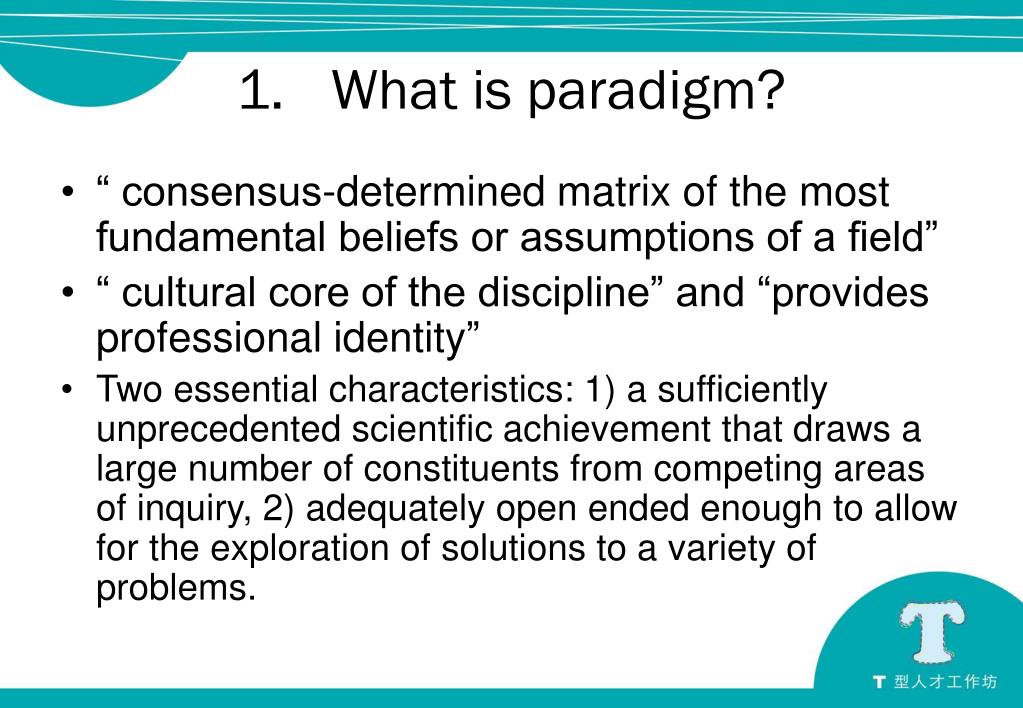
The approach seems, however, to have a number of crucial assets that might help avoid the limitations of the established disease and risk-factor epidemiology approaches and promote new directions of pursuit, including a better understanding of the complex relationships between aging and health, and other current challenges in creating healthy public policy. The importance and utility of health orientation need to be explored and ascertained in further research. This paradigm is outdated and finds its roots in Newtonian Physics and the science and political systems of. Paradigm Shifts of the Healthcare Delivery System. This shift is a change in the control of. affects patients and doctors attitudes towards medical care services and deliverance structure. The advocates of the health-oriented paradigm say it is difficult to reach a true, in-depth understanding of human health on the basis of a disease-oriented approach or from the traditional vantage-point of risk-factor epidemiology, whereas opponents point out that health does not lend itself to exact measurements or experimentation in keeping with the Galilean natural science ideal. We are used to use a wrong paradigm in healthcare. Currently, we are seeing a paradigm shift in medicine that is revolutionizing the way medical care is provided. The two paradigms exist side by side, and both are in a constant state of flux. The competing salutogenic view appears to be undergoing a renaissance in the new strategies of public health and health promotion, and producing theories of health based on more holistic approaches and diverse methods. In the early days of medicine, physical manifestations of illness were almost always explained in spiritual terms. The pathogenic view, which has dominated the orientation of medicine over the last hundred years, focuses on disease states and underlying factors that modify the chances of entering into one of those states. Thus it is relevant for modern practice to examine the social and historical forces behind medicine's paradigm shift and what that shift means for the 21st-century patient-physician encounter. In the exploration of health, two different types of approach can be identified. A paradigm is an overarching view-point which guides the articulation of theories and other activities in a particular field. All rights reserved.The history of science has been described as 'paradigm shifts' of sequential overthrow, each new paradigm replacing the previous one. Life expectancy rates have also dramatically dropped in recent decades. Shaun Mahony.Īlgorithms Complex biological networks Network medicine Precision medicine.Ĭopyright © 2019 Elsevier B.V. A Paradigm Shift in Medicine Learn about the 7 pillars of pet health Over the past few decades the rate of disease in our pets has sky-rocketed Today 50 of dog’s over 10 will develop cancer.

First conceptualized in the early 1970s, the seminal paper on the subject was published in Science by Theodore Friedmann and Richard Roblin, suggesting the great. This article is part of a Special Issue entitled: Transcriptional Profiles and Regulatory Gene Networks edited by Dr. Gene therapy, the modification of genetic information in living cells to address a mutated gene, has the ability to dramatically change the way diseases are treated, or even cured. In this review, we offer a comprehensive overview of network types and algorithms used in the framework of network medicine. In addition to base salary, Shift Paradigm offers benefits such as medical, dental, vision, STD/LTD, Life/AD&D, Flexible Paid Time Off, and various other ancillary benefits and perks. The analysis of these complex networks can reveal new disease genes and/or disease pathways and identify possible targets for new drug development, as well as new uses for existing drugs. The complexity of these interactions embraces different types of information: from the cellular-molecular level of protein-protein interactions to correlational studies of gene expression and regulation, to metabolic and disease pathways up to drug-disease relationships. The paradigm shift in healthcare delivery towards patient-centered care has restructured the dynamics of the relationship between the patient and the provider.


This new paradigm reflects the fact that human diseases are not caused by single molecular defects, but driven by complex interactions among a variety of molecular mediators. Network medicine is a rapidly evolving new field of medical research, which combines principles and approaches of systems biology and network science, holding the promise to uncovering the causes and to revolutionize the diagnosis and treatments of human diseases. In this paper we describe three paradigms of the health-disease process that in some degree correspond to the historical development of modern medicine and.


 0 kommentar(er)
0 kommentar(er)
